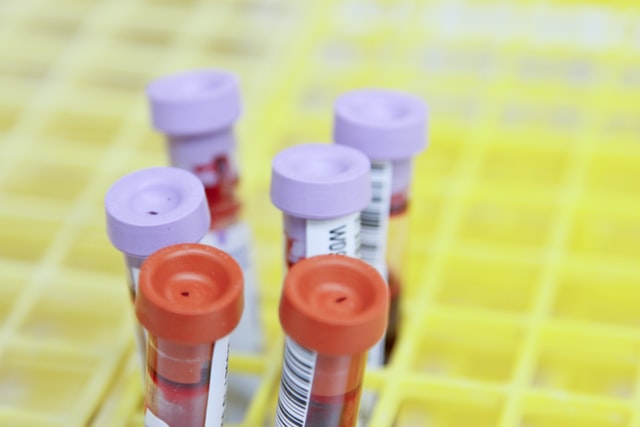How Widespread Prenatal Testing for Microdeletions Can Hurt Patients and Why the Genetic Testing Industry Needs More Accountability
By Katie Stoll,
Gene Cuisine
| 01. 04. 2022
image "Blood Samples" by Daniel Sone from the website of the National Cancer Institute
The New York Times published an important investigative piece this week, exploring concerns about expanded prenatal genetic screening. Specifically, the article focuses on the practice of prenatal screening for the possibility of a microdeletion condition in the fetus. The authors Sarah Kliff and Aatish Bhatia walk readers through some of the microdeletions that are often included as part of prenatal cell free DNA screening and discuss issues with the way these tests are marketed as providing accurate results and certainty when in fact most positive screen results end up being false positive. The article states that in interviews,
“14 patients who got false positives said the experience was agonizing. They recalled frantically researching conditions they’d never heard of, followed by sleepless nights and days hiding their bulging bellies from friends. Eight said they never received any information about the possibility of a false positive, and five recalled that their doctor treated the test results as definitive.”
The results of this investigation into patients’ experience with these...
Related Articles
By Scott Solomon, The MIT Press Reader | 02.12.2026
Chris Mason is a man in a hurry.
“Sometimes walking from the subway to the lab takes too long, so I’ll start running,” he told me over breakfast at a bistro near his home in Brooklyn on a crisp...
By Katrina Miller, The New York TImes | 02.05.2026
Joseph Yracheta: The Native Biodata Consortium is the first nonprofit data and sample repository within the geographic bounds and legal jurisdiction of an American Indian nation, on the Cheyenne River Sioux Reservation in Eagle Butte, S.D.
NativeBio participated in a ...
By David Jensen, California Stem Cell Report | 02.10.2026
Touchy issues involving accusations that California’s $12 billion gene and stem cell research agency is pushing aside “good science” in favor of new priorities and preferences will be aired again in late March at a public meeting in Sacramento.
The...
By Lauren Hammer Breslow and Vanessa Smith, Bill of Health | 01.28.2026
On Jan. 24, 2026, the New York Times reported that DNA sequences contributed by children and families to support a federal effort to understand adolescent brain development were later co-opted by other researchers and used to publish “race science”...




